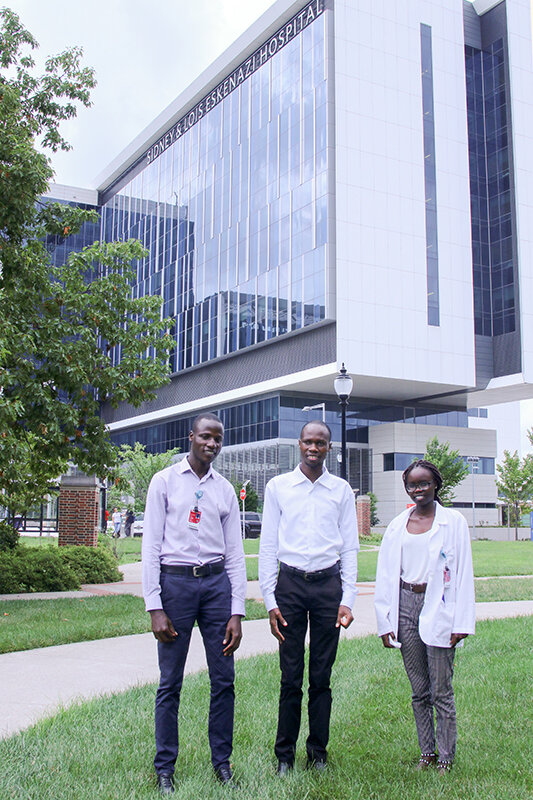Education Exchange Built on Ethics and Equity
Since the advent of the AMPATH partnership, medical education leaders in both Kenya and North America focused on a two-way exchange of trainees to nurture the next generation of global health leaders. Over the course of the 30-year partnership, 1,871 North American and 400 Kenyan clinical trainees have participated in this bilateral exchange.
As interest in global health has increased over the past three decades, AMPATH remained steadfast to a set of principles to ensure equitable and ethical rotations. In October, a team of AMPATH leaders outlined these principles in an article entitled “Developing Ethical and Sustainable Global Health Educational Exchanges for Clinical Trainees: Implementation and Lessons Learned from the 30-Year Academic Model Providing Access to Healthcare (AMPATH) Partnership” published in the Annals of Global Health.
Moi medical students in Indianapolis last summer
The article includes specifics on various aspects of AMPATH’s program including curriculum, housing and costs in the context of ethical global engagement. ”AMPATH provides a model for developing an institutional partnership for a bilateral educational exchange grounded in cultural humility, bidirectional relationships, and longitudinal, sustainable engagement,” according to the article.
Matthew Turissini, MD, associate field director for population health, and Tim Mercer, MD, MPH, director of global health programs at the University of Texas at Austin-Dell Medical School, led this review of AMPATH’s education program.
“The educational mission of AMPATH is absolutely integral to the care and research missions,” Turissini said. “Ultimately, this robust educational exchange supports both local capacity building and strengthens the health system,” he added.
Moi medical student completing a rotation with AMPATH partners at Brown University
The article traces the history of the AMPATH partnership, describes each partner’s areas of primary involvement, provides specifics of rotations for Kenyan medical and dental students and registrars (similar to residents in North America), as well as rotations of North American medical and pharmacy students and residents to Kenya. It also discusses limitations, challenges and lessons learned to provide a candid roadmap for programs interested in starting or assessing their own short-term global health offerings. In addition to the bilateral exchange discussed in this paper, AMPATH is committed to growing medical education programs at Moi University. AMPATH has assisted Moi University in developing eight residency programs and three fellowship programs over the last thirteen years with additional residency and fellowship programs planned to start in the next few years.
“We have learned a great deal over the last 30 years of hosting trainees in Kenya and North America,” said Turissini. “Our hope is that this article will lead to further study on the impact, structure and policies related to bidirectional educational exchange to reach our ultimate goal of achieving true global health equity,” he concluded.
Full citation:
Turissini, M., Mercer, T., Baenziger, J., Atwoli, L., Einterz, R., Gardner, A., Litzelman, D. and Ayuo, P., 2020. Developing Ethical and Sustainable Global Health Educational Exchanges for Clinical Trainees: Implementation and Lessons Learned from the 30-Year Academic Model Providing Access to Healthcare (AMPATH) Partnership. Annals of Global Health, 86(1), p.137.


